English language theatre cannot represent the vastness of Indian theatre: Vijay Padaki
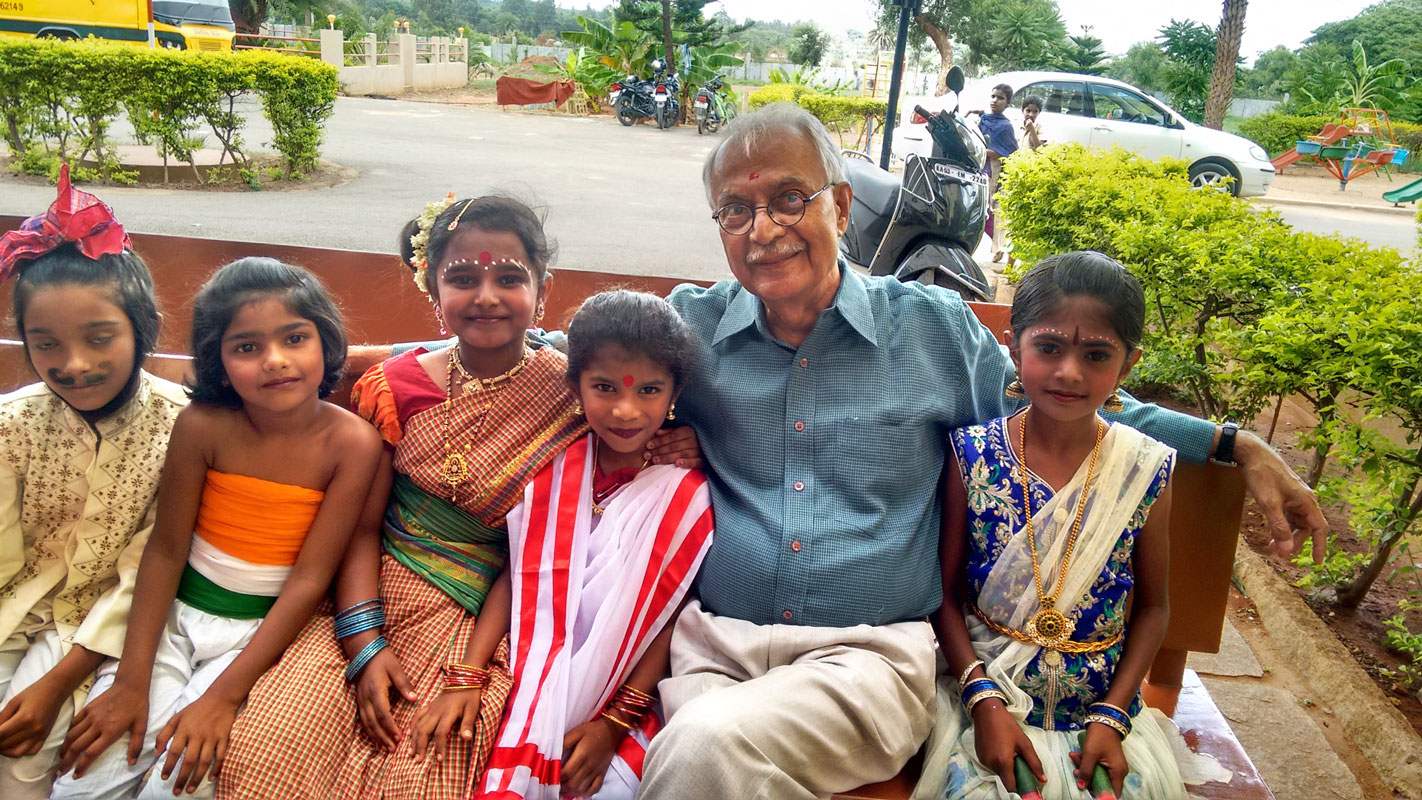
The Bangalore Little Theatre (BLT), one of Bengaluru’s first English theatre groups, is celebrating its diamond jubilee this year. Vijay Padaki, a member of RC Bangalore, RID 3190, is its founder-trustee. He is also assisting RCB in setting up its own theatre club.
Padaki is a psychologist and behavioural scientist, a founding faculty member of IIM Bangalore and a visiting professor for R&D management at the IISc Bangalore. He started his journey in theatre at 20 and has written over 50 original plays in English, besides several adaptations and translations, over a span of 60 years with BLT. Padaki has been an actor, director, trainer, writer, designer and administrator. He institutionalised several activities of BLT, such as the annual summer workshop for newcomers to the theatre (SPOT), from which has emerged a large number of theatre personalities in Bangalore, the History of Ideas programme of biographical plays, the Courtyard Theatre and the Children’s Theatre programmes, and has also helped forge several international partnerships over the years.
English language theatre can be expected to grow in India. There is more interest in writing for the stage now than 20 years ago.
As an ode to Padaki’s valuable contributions to theatre, BLT is publishing all his plays over nine volumes and last year, on his 80th birthday, it felicitated him by staging a festival of his plays across six months.
Here are excerpts from his interview with Rotary News:
How did you develop an interest in theatre and tell us about your journey with BLT.
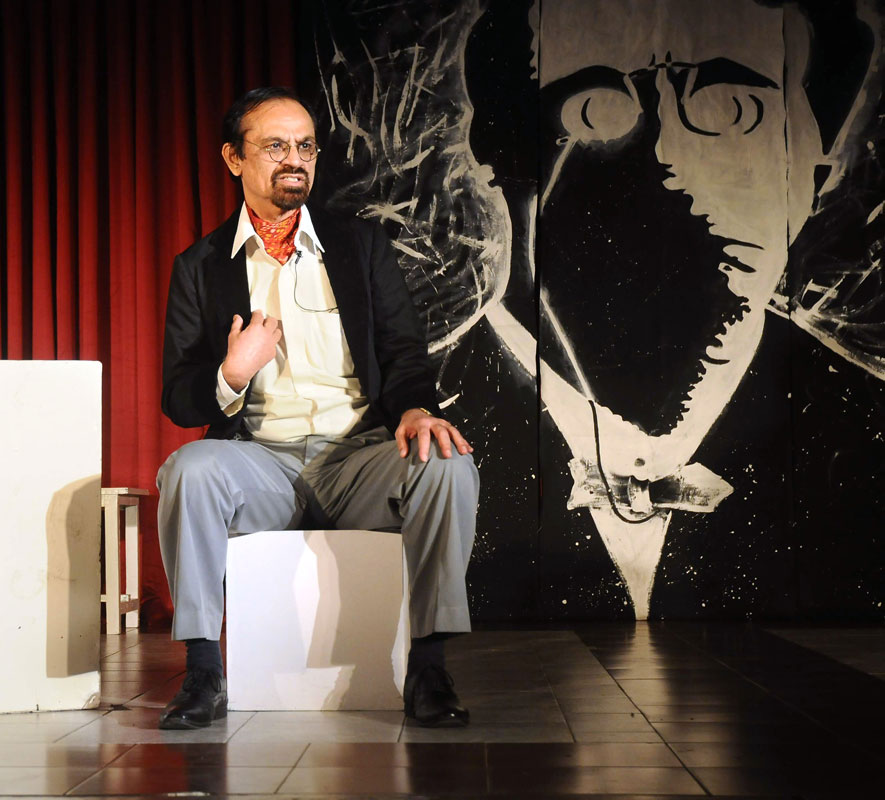
I had the good fortune of having two outstanding mentors at a formative stage in my life. The first was a Professor of Drama during my college years in Madras, a Scotsman, who was also a dramaturg. He introduced me to serious drama beyond college skits. The second was one of the founders of BLT, Scott Tod (another Scotsman), who introduced high quality acting and directing into the amateur drama scene in Bangalore. Both of them took me under their wings, one after the other, and encouraged me to pursue drama seriously.
How do you conceive ideas for your plays?
I can think of two types of influence. The first is from my training as a psychologist. It made me accept the reality of diversity in human behaviour, and to even respect that. This means that all pigeon-holing of people is invalid and unhelpful. It is terribly important to look for what is unique in a person, what is not always revealed — in the character as well as the actor playing the part.
The theatre has still not acquired sufficient societal status to be included in the curriculum in schools and colleges. One problem not fully addressed (or even recognised) is the sustainability of theatre programmes.
The second influence is my instinctual search for a rhythm to things — in the words spoken, the moves, the flow through scenes, and so on. I find myself attending to this aspect of rhythm quite a bit in my productions. And I find myself easily bored when a production doesn’t get out of the “stuck record” rhythm!
Some of your most memorable plays?
It is very difficult to choose one piece to hold up. This is especially because I have always taken on different types of dramatic material, in different genres, exploring different forms and staging approaches. One of the best compliments I have received was that no two plays of mine have been the same — either as scripts or performances.
I can say, however, that in my early years as an actor, I really enjoyed finding the layers within layers of meaning in the part of the Father in the Pirandello classic, Six Characters in Search of an Author. I have played that part twice, in two different productions! As a director, I really enjoyed putting together a massive Children’s Theatre production. The play was Rigmarole by Sai Paranjpye.
What are your plans for the theatre club of RC Bangalore? Will the club train budding artistes; will it organise shows to help in fundraising for projects?
I was invited to join RC Bangalore in my mid-seventies. Rather late in life! A small group in the club wished to do something more than the variety entertainment that clubs are expected to put up now and then. You know what these are… acts that have not grown beyond college skits and songs sung to the tune of some popular Bollywood numbers. This small group took the idea of a theatre club seriously. In the beginning we did play readings and introductory theatre appreciation workshops. And later we took on a major theatre production. They were planned as public performances, so they had to be good! The play was Robi’s Garden, a delightful collection of stories from Rabindranath Tagore. The group has done other things after that. Shorter plays from Moliere, Chekhov and even some of my work.
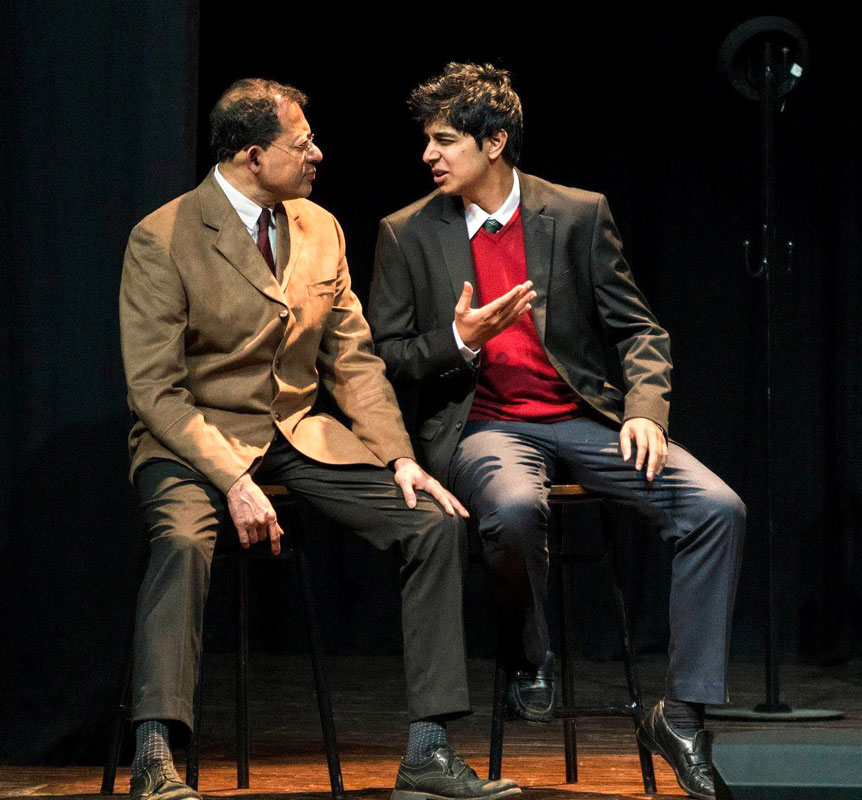
The theatre club struck a formal partnership with BLT, with me serving as the bridge. This has helped greatly in bringing professional inputs to whatever the theatre club has done. For instance, BLT has a prestigious annual Summer Project on Theatre (SPOT), a rigorous three-month exposure to theatre methodology, culminating in a performance. The workshop has been held at RCB premises for three years with some places reserved for participants from The Rotary Theatre Club. Rotarians have regularly taken part in major productions of BLT. There was also some original scripting for a short play called Wheels. It was about the need to rethink fundraising strategy in Rotary clubs — and to move on from mere charity to social development goals. The play was invited to perform in other clubs in Bengaluru.
Coming to the future of the theatre club, yes, a scaling up is definitely on the cards. A major fundraising production was planned for 2020 in collaboration with BLT. It had to be put off because of the Covid pandemic. There are other ideas and plans, which will take their own time to take shape. For instance, the idea of creating a Theatre Fellowship across Rotary clubs, both within India and internationally. I have been in touch with the Rotary Club of Roswell (in Atlanta) which has a long-term association with Georgia Ensemble Theatre, very much like that of BLT and RCB. Another plan is to play a catalyst role to promote serious theatre activity in Rotary clubs in and around Bangalore. A third is a more ambitious idea, a Theatre-for-Peace programme across Rotary clubs. The recent dialogue between Rotary clubs of India and Pakistan revealed the potential for more ground level projects.
Can you give us a peek into future programmes of BLT?
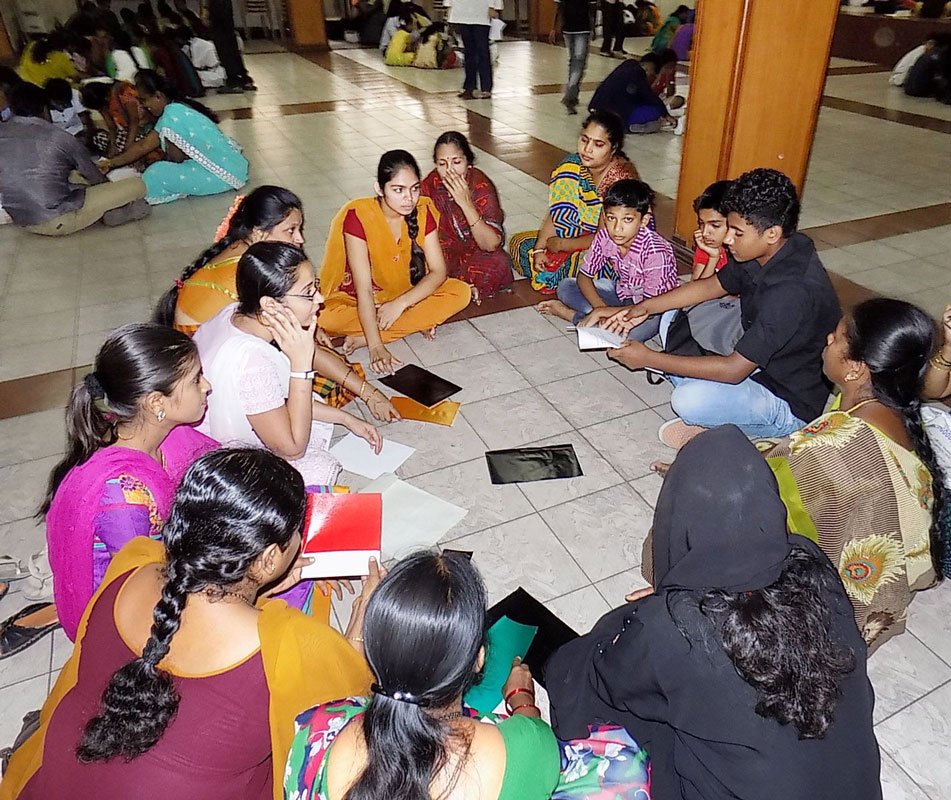
Well, BLT is 60 now, celebrating its diamond jubilee. There are plans to include Tagore’s 160th birth anniversary year (2021) into the celebrations. There are two original adaptations of Tagore’s works ready for staging. And there is the internationally acclaimed play based on the Gandhi-Tagore exchanges, The Prophet and the Poet, with 110 performances done already. I am personally involved in a project to develop a play based on exchanges between the founding fathers of American independence and the court of Hyder Ali and Tipu Sultan. The true strength of BLT is in its investment in long term theatre development programmes that actually sustain the performance programme.
In your opinion, what is the scenario when it comes to English theatre in India, and its future?
English language theatre is an incongruity in a country in which only two percent of the population speaks the language. Neither I nor my writing can truly represent the vastness of Indian theatre. Much of that vastness is facing extinction. And yet English language theatre will certainly flourish and grow in India. Although it caters to a small minority in the population, it is a most influential market segment in society. This has been so for a very long time indeed, and is going to remain so. The people in this segment have access to vast resources and the power to influence policy at many levels. So, English language theatre can be expected to grow in India. There is more interest in writing for the stage now than 20 years ago. BLT itself is publishing at least nine volumes of plays developed over the years. The first three volumes were released just before the pandemic struck. The rest should be out
early 2021.
Is the younger generation interested in theatre?
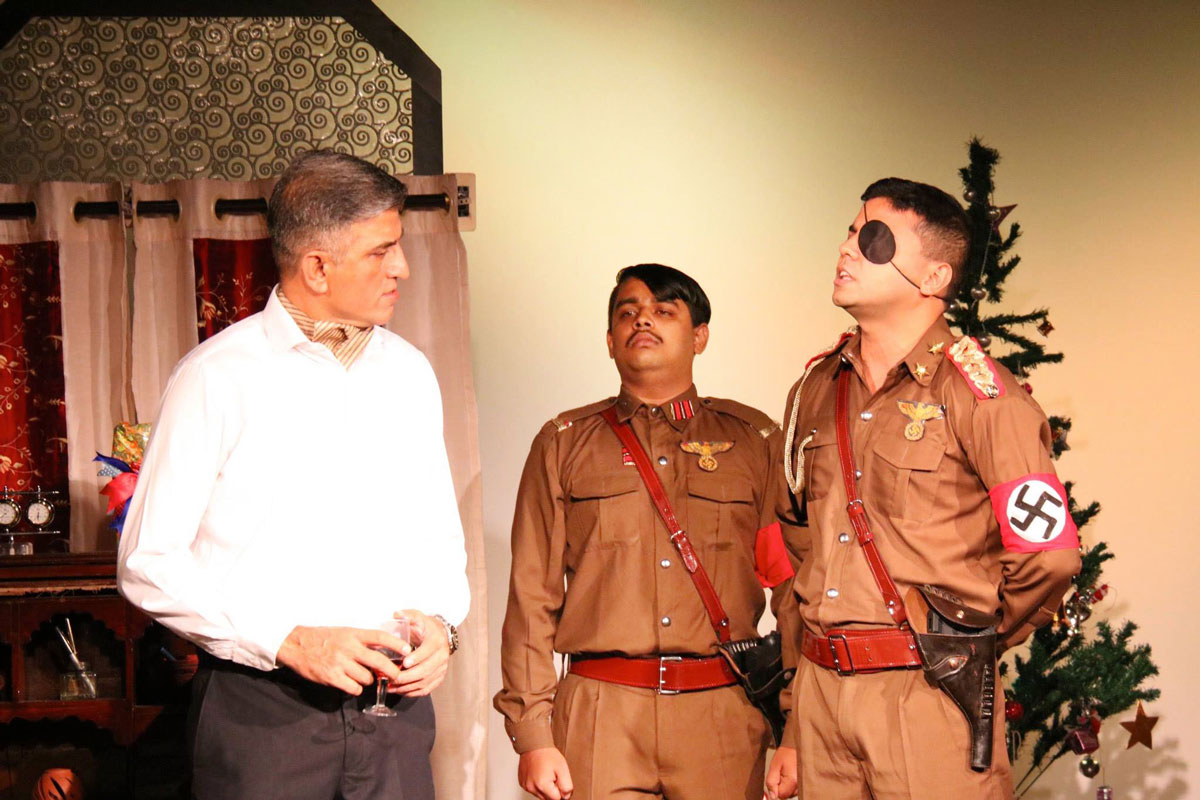
Much more now than a few years ago. But pursued more as “been there, done that”, rather than as a serious quest. The theatre has still not acquired sufficient societal status to be included in the curriculum in schools and colleges. There are exceptions, of course. But the number is very small. One problem not fully addressed (or even recognised) is the sustainability of theatre programmes. More specifically, where are the teachers? I mean qualified teachers. If amateur theatre artists take to training and teaching, we can only produce amateur artists.
How has the pandemic affected the theatre scene? Have you organised or are planning virtual screening of plays similar to movies on OTT or Carnatic music ticketed performances done online as in Chennai?
In BLT we have done our bit of innovation in online performances. We have even explored low cost (but good quality) pre-recorded performances that can be presented online. There is a long term programme called Courtyard Theatre. These are successful play scripts converted into a two-actor format, performed with minimal staging requirements. The most recent of these has been Shakespeare By Any Other Name. It is a play on the idea of Shakespeare and how he got to be the god-like figure in theatre. It has two women performing. Like all plays in the Courtyard programme, this Shakespeare play is also designed to be performed in a wide variety of venues. But in the Rotary Theatre Club, it has been a period of lull, restricted to play readings.
